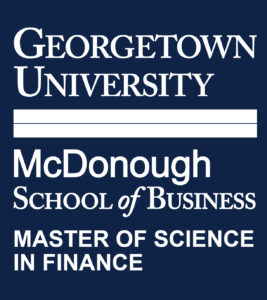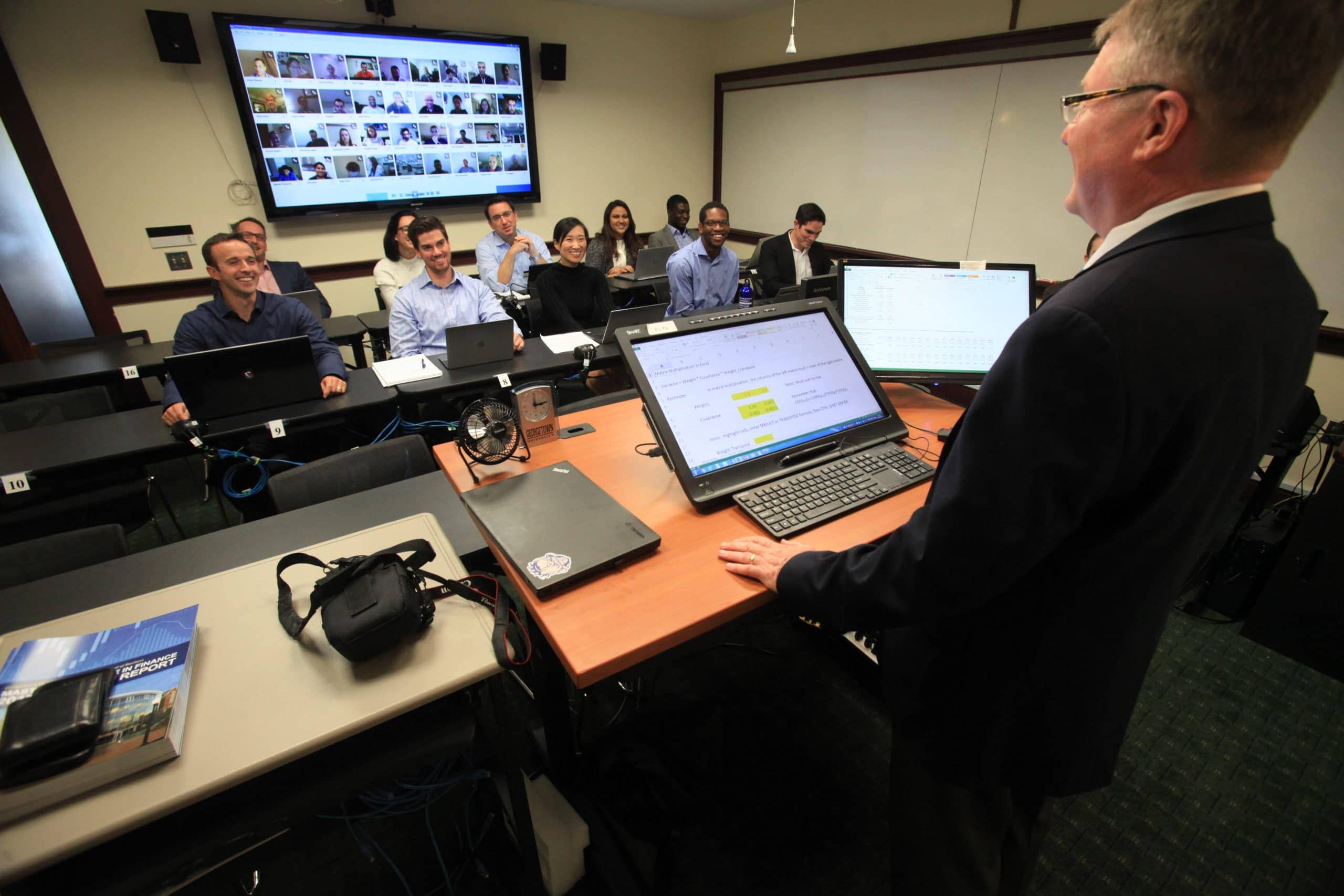MSFHQ and the Georgetown University MSF program have work together to present to all of you a 3-part interview with Georgetown Professor and Program Director Allan Eberhart. This interview marks the 5th year anniversary of the program launch and the continued success of the Georgetown program. I plan on posting a new part of this interview every week, on Wednesday, so please check back for more!
Part 1 of 3
MSFHQ: How has the Georgetown MSF program evolved since it launched almost five years ago?
Georgetown MSF: We launched in 2014 and have added many new features. Here are three highlights:
- Blended Classroom: With this classroom, students may attend our weekly live sessions online or on campus seamlessly. The online students are displayed on a large screen in the classroom, and they have the same opportunities to participate in class discussions as the on-campus students. It is as if the students are all sitting next to each other regardless of where they are in the world.
- MSF Consulting Clinic: This clinic gives an internship experience to students interested in a consulting career but who may not be able to complete a full-time internship. It has been tremendously popular with both students and clients, and we plan to launch an Investments Clinic soon.
- Student Investment Club/Peeptrade Competition Team: This club provides the opportunity for our students to gain investment experience, primarily through our representation in the biannual Peeptrade Competition. The Georgetown McDonough team won the spring 2017 competition, beating teams from INSEAD, London Business School, Princeton University, University of Southern California, and several other universities around the world.
MSFHQ: What are you hearing from your students as to why they chose Georgetown?
Georgetown MSF: Our students choose the MSF program at the McDonough School of Business because it embraces the Georgetown tradition of cura personalis—concern for the whole person—with the flexibility that a technology-intensive program can offer. We deliver this unique combination of flexibility and individual attention through the use of a cohort model (which fosters a strong bond among our students even though they may live thousands of miles away from each other), weekly live sessions using cutting-edge technology in our Blended Classroom, exclusive use of full-time faculty to develop all of our asynchronous material and deliver virtually all of our live sessions, and a concierge level of career management services. We don’t know of any other program that comes close to delivering this suite of components.
MSFHQ: Tell us about the online and blended formats, what are the advantages offered to students?
Georgetown MSF: Blended learning typically means some combination of asynchronous material that is available online and on-campus learning that requires students to be within commuting distance of the campus. We follow this model with an important additional feature: you do not need to be within commuting distance of the campus. With our Blended Classroom, students have the option to attend a weekly live session on campus or online. Many of our students attend the sessions on campus regularly whereas others attend primarily online but will attend on campus when they happen to be in Washington. It’s their choice, and the key is that they have the same educational experience whether they are online or on campus.
MSFHQ: The program emphasizes the “real world applications” and “global outlook”. Could you give us some examples of what that means for students and their careers, and how the faculty and coursework fulfill that promise.
Georgetown MSF: Our curriculum is both extraordinarily rigorous and practical. For example, students will learn about the binomial option pricing model in their asynchronous material, and then see how to apply that model in the real world with a highly interactive case discussion in their weekly live session.
As for the global outlook, we do not have a course on international finance because the international components of finance are laced throughout the curriculum. For example, in our corporate finance course, students learn how to do international capital budgeting. With this holistic curriculum approach, a course on “international finance” would be redundant.
It is also important to note that our capstone project is the Global Consulting Project course. In this course, students work on a real-time consulting project for an international firm. The course concludes with a presentation to the client in their home country. We have traveled to South Africa for the past three years and will return this year. Our clients have included Barclays, Coca-Cola, Cummins, Standard Bank, and many other regional and local firms. They have been thrilled with the work of our students, and we work with many of them every year.
MSFHQ: As the MSF Program Director at Georgetown, what one word sums up your vision for the future of the program?
Georgetown MSF: Innovation. As the old saying goes “You’re either moving forward or you’re moving backward.” For us, that means constantly evaluating how we can do things better, even when they’ve been going really well.
To learn more about Georgetown’s MSF program, click here.





